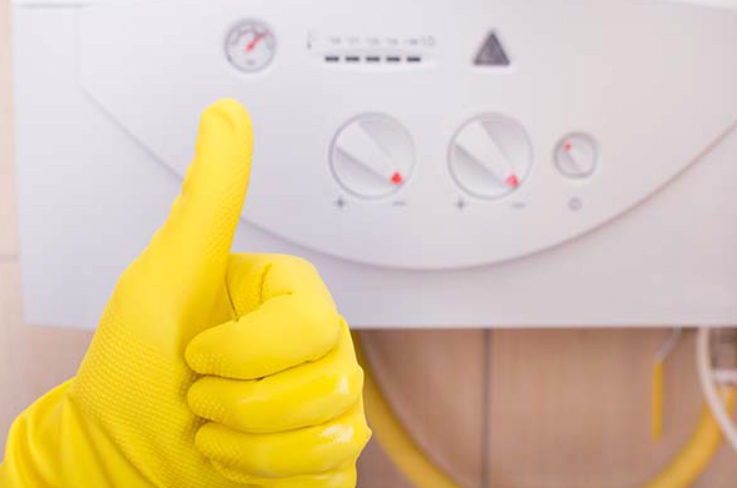
What You Should Know About Tankless Water Heaters
Tankless hot water heaters have been around as a concept much longer than most people realize. In fact, the first tankless gas water heater was patented in 1868 by Benjamin Waddy Maughan. The first electric tankless water heater arrived on the hot water scene in 1929, an invention of Stiebel-Elton, a company still in business today. Tankless water heaters have come a long way in safety and efficiency since those early days. Durable, reliable and energy efficient, for many households and businesses, the tankless heater is an excellent hot water solution.
How Does A Tankless Water Heater Work?
When considering tankless water heater pros and cons, energy efficiency and lower energy costs are two of the most well known benefits of choosing to go tankless. Those benefits are directly related to the way a tankless heater works. Hot water is heated on demand, unlike tank-based water heating systems. Those typically operate on a continuous and more costly cycle. When not in active use, the water stored in the tank is heated, then it cools and is reheated, again and again.
With a tankless water heater, once the demand is made by an appliance needing hot water, such as a dishwasher, or by turning a hot water tap, water is drawn into the unit. The heating element then quickly brings the water up to the desired temperature, so it’s hot when it exits the unit. This provides a continuous supply of hot water while it is in active use, another important pro when comparing tankless performance to tank-based systems, which often do run out of hot water. Depending on the type and model of tankless water heater in use, that hot water flows at 2 to 5 gallons per minute.
Types Of Tankless Water Heaters
Tankless water heaters typically are run by gas or electric. Some electric tankless water heater types will require 220 volts, other models can run on 110 volts. An electric tankless water heater typically lasts 10-12 years. In general, a tankless gas water heater offers a higher water flow rate than an electric one does, according to information from the US Department of Energy. A well maintained tankless gas water heater can provide 20 years of service, significantly longer than the 6 to 10 years typically expected of tank style water heaters.
Today, a tankless gas water heater will be either the newer type, a condensing model, or the older style, a non-condensing model. Both must be vented. The non-condensing type uses stainless steel pipe to vent the high temperature exhaust directly outside. A condensing model uses that hot exhaust to help heat the water, so what exits the vent pipe is cooler enough in temperature that PVC pipe can be used instead of stainless steel. The higher energy efficiency and more cost-effective pipe option can impact overall tankless water heater cost.
Whole house tankless water heaters can meet the needs of a household with an average hot water demand. However, bigger homes, larger households and businesses, which are all more likely to have higher than average hot water demands, including simultaneous, multi-point hot water demands, may prefer point of use water heaters. Point of use tankless water heaters can be set up to be dedicated to a specific appliance or room. They can also be strategically placed to provide demand back-up to a whole house system.
Choosing The Right Tankless Water Heater System
There are a number of variables to consider when considering the best tankless water heater options for your home or business. These include expected hot water demand, the type of power available, the layout of the home or business and the temperature of the local ground water. The water temperature matters because the unit will be heating the water from that temperature point to the desired temperature. Colder climates have a wider temperature gap during the cool seasons, a factor that may impact type and model selection.
Naturally, tankless water heater cost is determined by the type of water heater you choose. A tankless gas heater can range between $200 and $2,000, depending on size and output. Electric tankless heaters can cost between $100 and $900. There will also be expenses connected with installation. Do your research, check out tankless water heater reviews and consider a consult with a tankless water heater installation expert. Hou Water Heaters in Houston has the experience and expertise to help you design and install a tankless system to meet your specific hot water needs.
Professional Installation Essential
For maximum safety and optimal function, choose experienced, professional installation. Whether you’re having a new gas or electric tankless water heating system installed, adding a point of use unit to boost overall system performance or upgrading or replacing parts for an existing system, Hou Water Heaters in Houston can help. Hou installation technicians are highly experienced and stay up-to-date with the latest tankless technologies. Courteous, on time and knowledgeable, you can rely on Hou technicians for top-notch customer service.
Tankless Systems Deliver Value
While the initial outlay may cost more than tank systems, tankless water heating systems deliver long-term value. They are more energy efficient, reducing overall energy costs significantly. They can also last years longer, especially when well maintained. A quality tankless system, installed by a skilled, knowledgeable professional can be counted on to deliver value as well as convenience.